In the north-west suburbs of Paris, nestled in a bend of the River Oise, is the Île de Loisirs de Cergy Pontoise: a water park with swimming pools, slides, lakes and beaches.
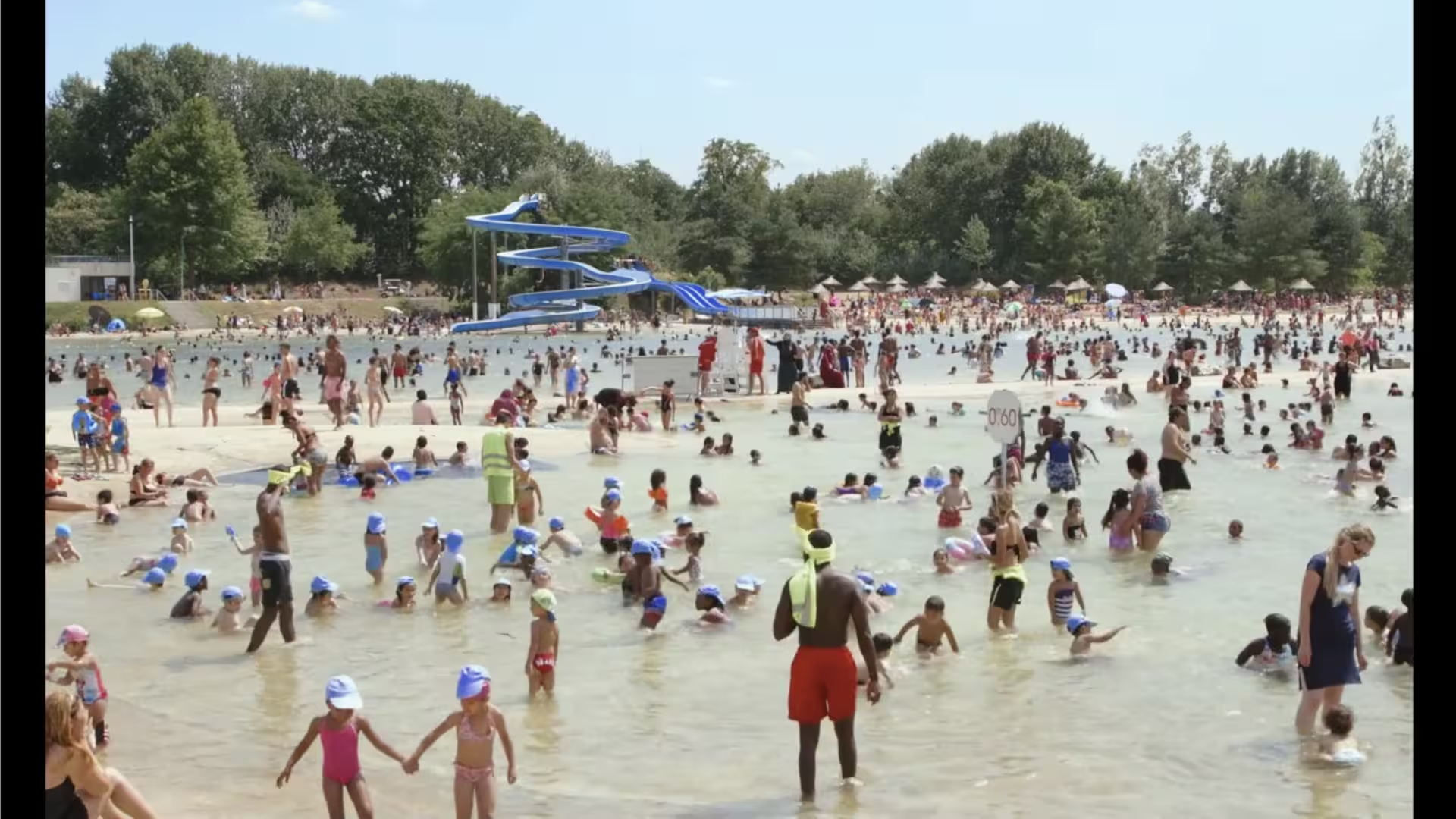
Guillaume Brac’s 2018 film Treasure Island follows, in gentle and naturalistic style, the park’s varied visitors, from a group of young boys trying to sneak in without their parents to amorous teens on the pull.
It’s fair to say the latter group have mixed results. Brac follows two slightly pathetic but concerningly insistent boys who can’t seem to get the hint; they’re listed in the credits as “les dragueurs de la plage” – literally the “dredgers of the beach”, but figuratively the “incessant chatters-up”. We watch them ask for the numbers of virtually every girl they meet, including the lifeguards, and get knocked back every time.
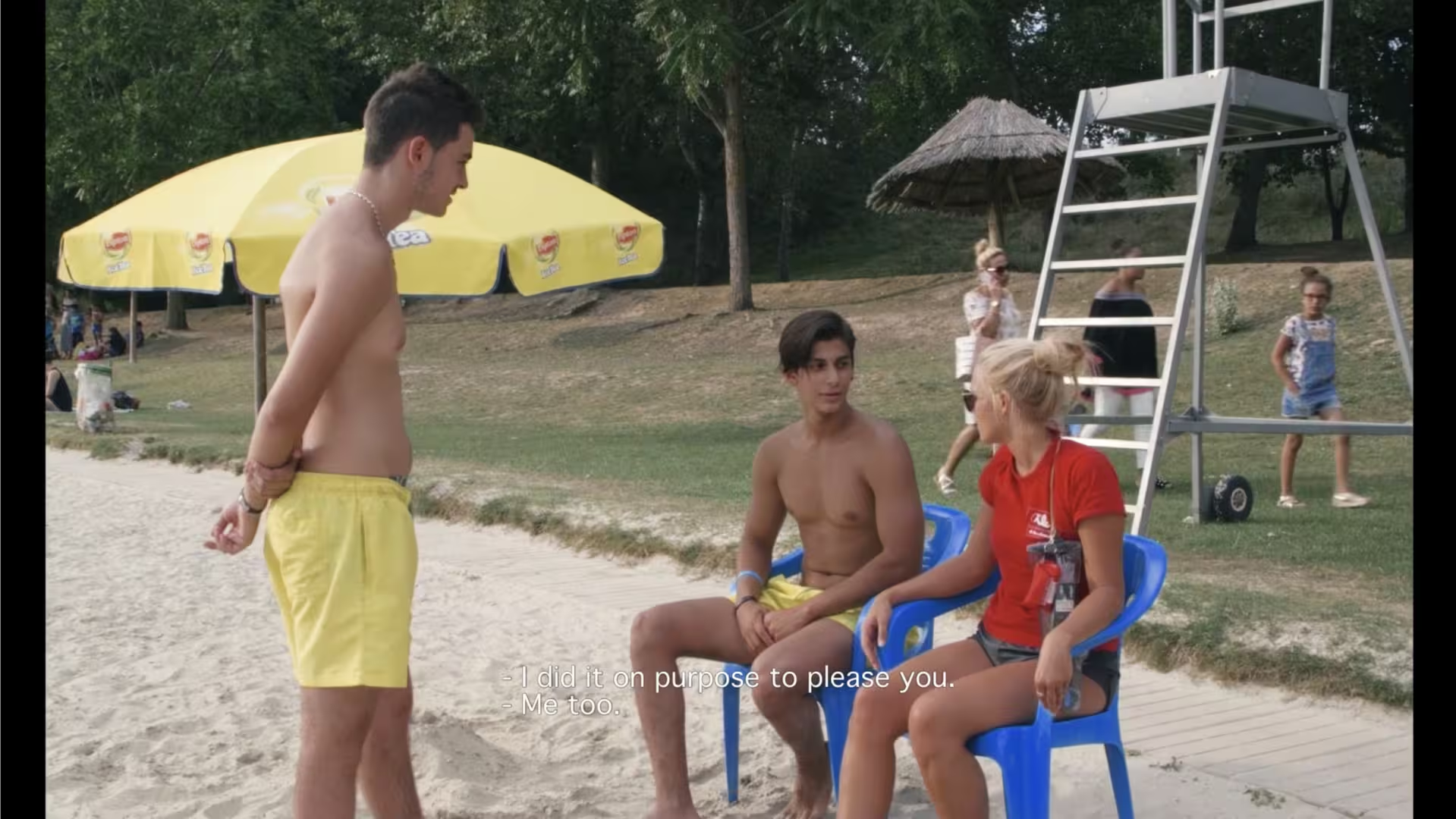
More successful is the energetic, full-of-life pedalo seller (listed more flatteringly as “l’Adonis du pédalo” in the credits) who sneaks back into the park with his friends – and a couple of girls they met that day – to paddleboard across the lake. Looking for kicks, they dive off pylons and explore a pyramid in the dark. At one point he relates his carpe diem life philosophy, which contains a kernel of melancholy within it, a fear of summer ending before you’re ready:
We just wanted to have fun. You’ve got to enjoy life, you don’t know what tomorrow will bring. If something comes into your head and you know it’s gonna give you a kick, you’ve just got to do it, even if it means doing something forbidden, or getting chased by the police. You feel your heart beating, and you look at your friends and say ‘right now, I’m alive!’
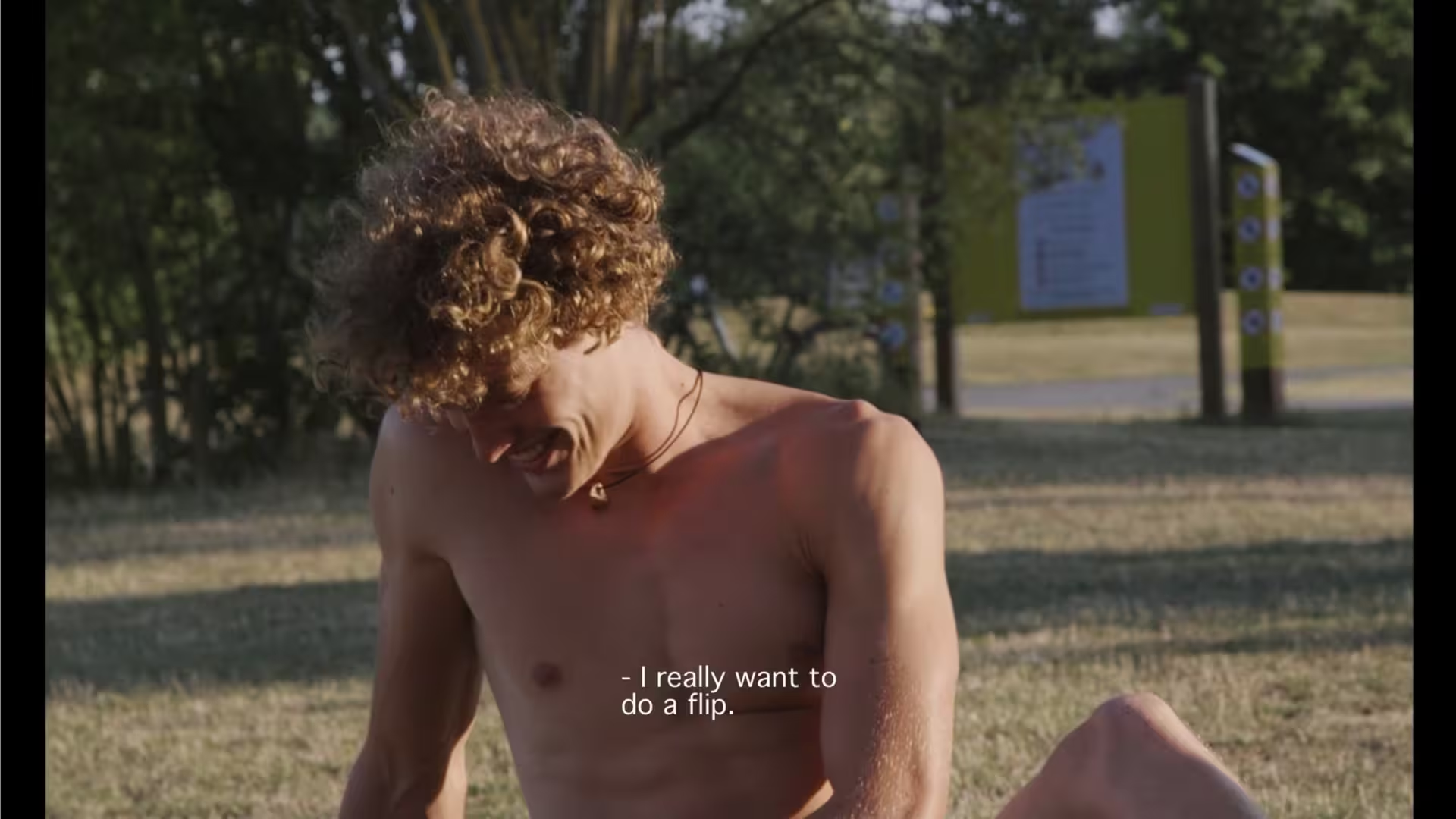
L’île is an oasis, an island paradise into which the real world barely creeps. It’s overseen by the director and his “right-hand man”, cooped up in an office, trying to maintain order and to maintain the sense of the park as an idyll.
But we do see glimpses of the real world: most overtly when an Afghan refugee family tell their story of escaping the Taliban and arriving in France, but also in the sheer diversity of the park’s visitors, who come from every different social class, cultural background and ethnic group but who all rub along together in the park. It’s a film that reflects the Parisian suburbs, and modern France more broadly.
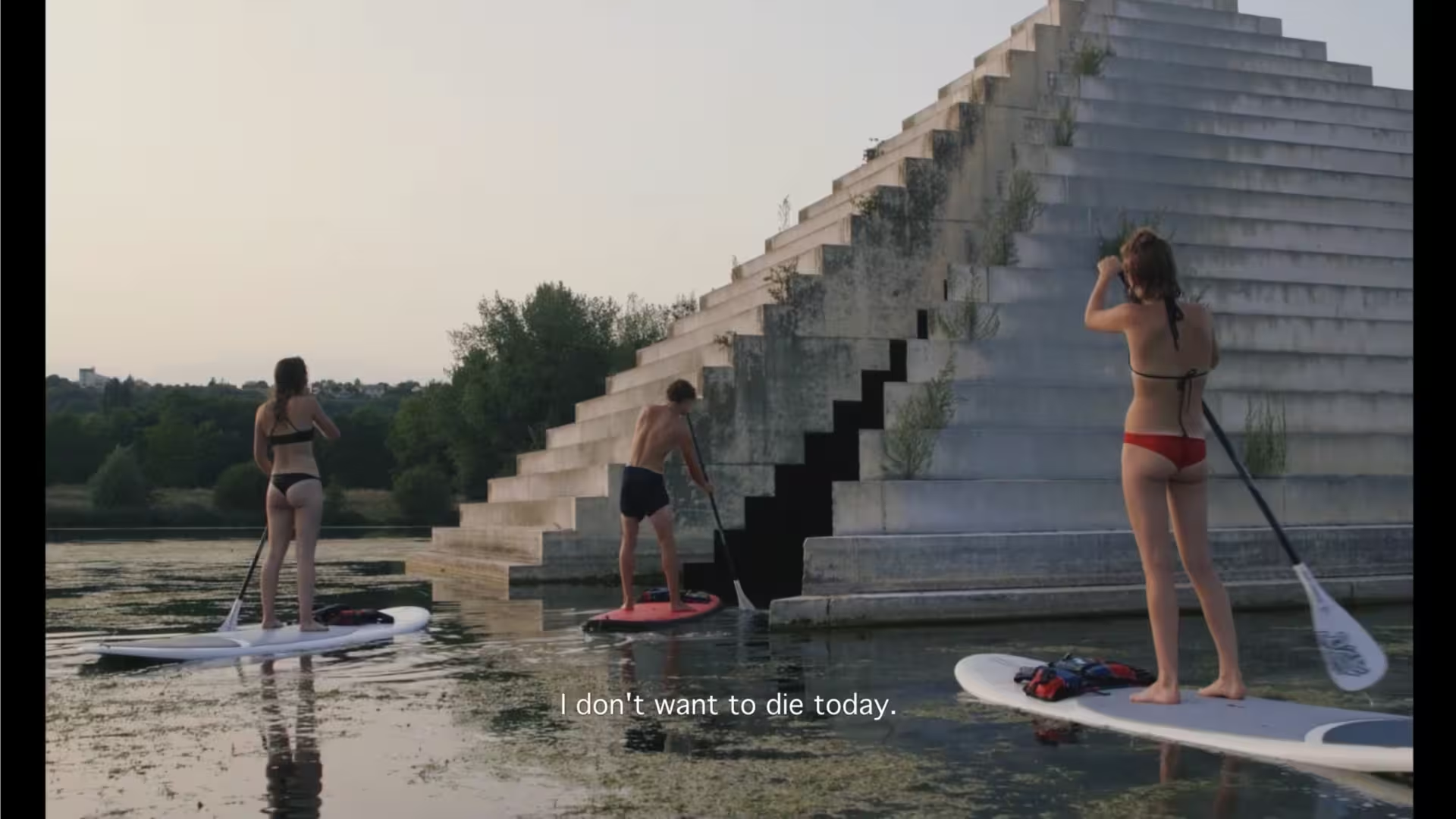
More than anything, though, it’s a film about youth: about youthful spirit, about life’s all-too-brief summers, about opportunities taken and opportunities missed, about experiencing that youth for the first time and about attempting to recapture it later in life. Brac dedicates the film to “l’enfance éternelle” (the eternal childhood).
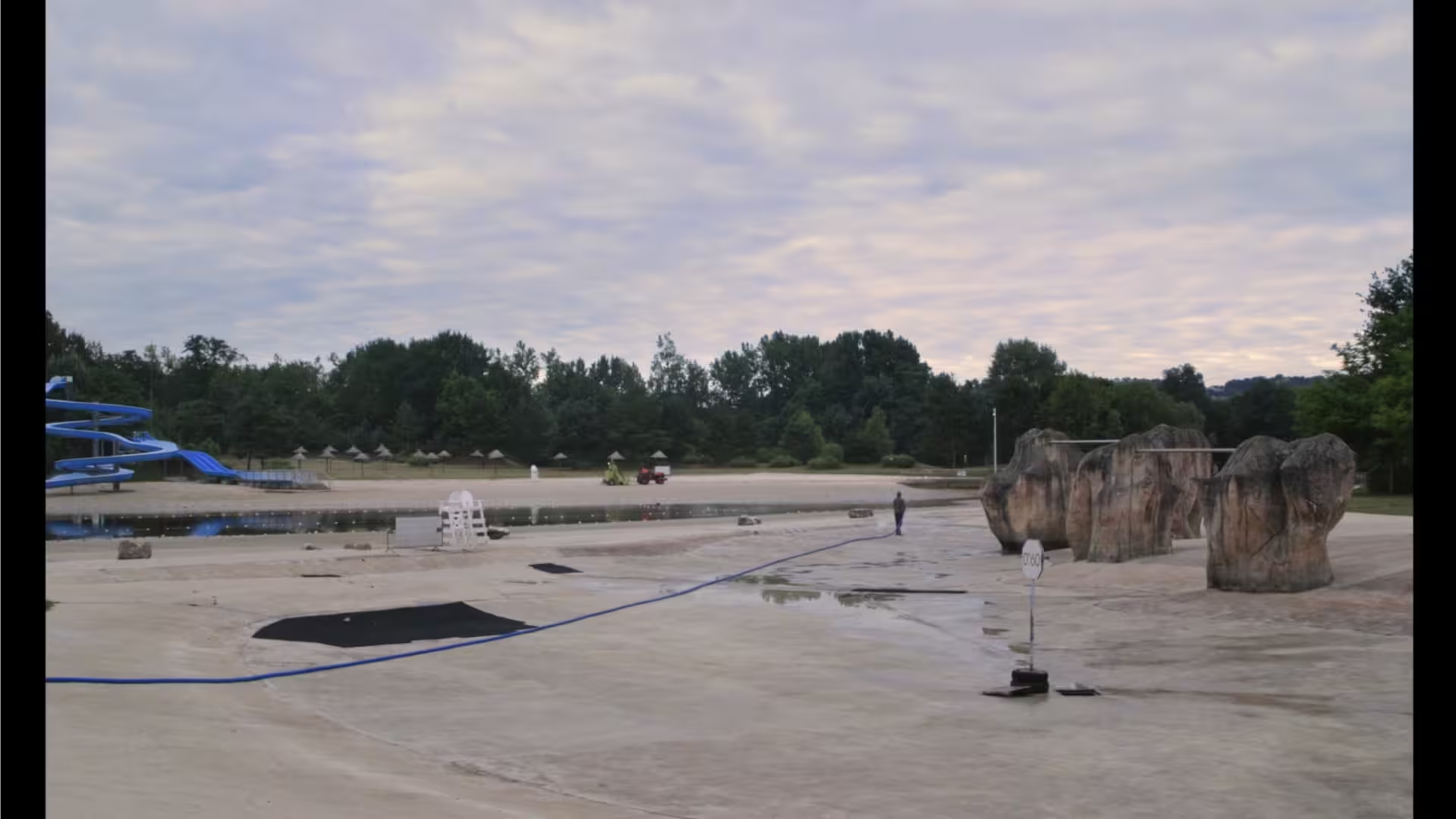
Like youth, though, the fun has to end. As September approaches and the weather cools, the director must decide which will be the final day of opening. Reading the weather report, the decision is made and the pool is drained under darkening skies. Summer is over.